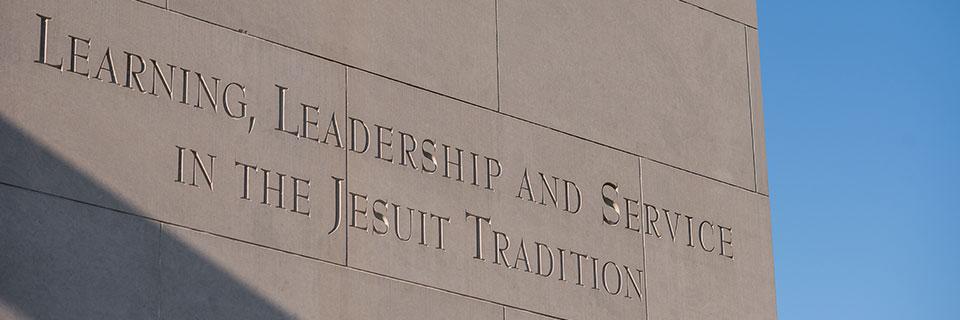"Where Do We Go From Here?" A Statement from The Rev. Thomas B. Curran, S.J.

Rockhurst University Companions,
From the time we saw the images of George Floyd’s death, we wondered what would happen. Would he receive justice? We now know the jury’s verdict, but our questions do not end.
“Where Do We Go From Here: Chaos or Community?” It’s the title of Martin Luther King Jr.’s book from 1967. Dr. King wrote the book during his extended summer retreat/vacation in Jamaica. It was published shortly after his death in 1968. The title is prescient. Additionally, Marcia Chatelain and others have made the argument that King’s work mirrors Ignatius Loyola’s Spiritual Exercises, a work central to Jesuit and Ignatian spirituality.
In the Exercises we experience what is known as The Principle and Foundation. It’s where we are instructed on the end for which each of us has been created: to praise, reverence and serve God, and by doing so, to save our souls. God created all things on this earth to help us fulfill this purpose.
King provides similar language: “…our religious conviction is that (men) are made in the image of God and that we are souls of infinite metaphysical value.” He goes on to state that if we accept this then we cannot be content to see people victimized and without resources. “All enter the same systemic gateway of human birth, into the same adventure of mortal life.”
Dr. King makes the distinction that laws only declare rights; they do not deliver them. If we rely simply upon the laws, we can only hope to avoid chaos. However, he called for us to be more. He called for a community based upon love, a beloved community. His reflections came out of his experience, his retreat/vacation in Jamaica, and his deeply rooted faith.
King concludes his book citing Arnold Toynbee, historian and philosopher, who stated that “… the first hope in our inventory must be … that love is going to have the last word.” Ignatius Loyola concludes the Spiritual Exercises with the Contemplation to Attain Love whereby he instructs us that love ought to show itself in deeds more than words.
So, where do we go from here? We can choose chaos or community. Both Martin Luther King and Ignatius Loyola took time away to reflect upon what was happening in their lives. For Dr. King, he considered the trauma, the mistreatment, and the blatant prejudice he was made to endure. Yet, he chose to love. Ignatius, recovering from the trauma of being struck by a cannonball, chose to seek where God was leading and accompanying him in love.
If we are really committed to the values we articulate as a Jesuit University, we need, in the example of Dr. King and Ignatius Loyola, to take this time to consider what is happening in our individual and collective lives. Let us consider our shared humanity and the end for which we have all been created. And, then let us pursue a community, city and nation that is based upon and lived in love. It must be the first and the last word. From that expressed love will flow the justice deserved for George Floyd.
Thomas B. Curran, S.J.
President







